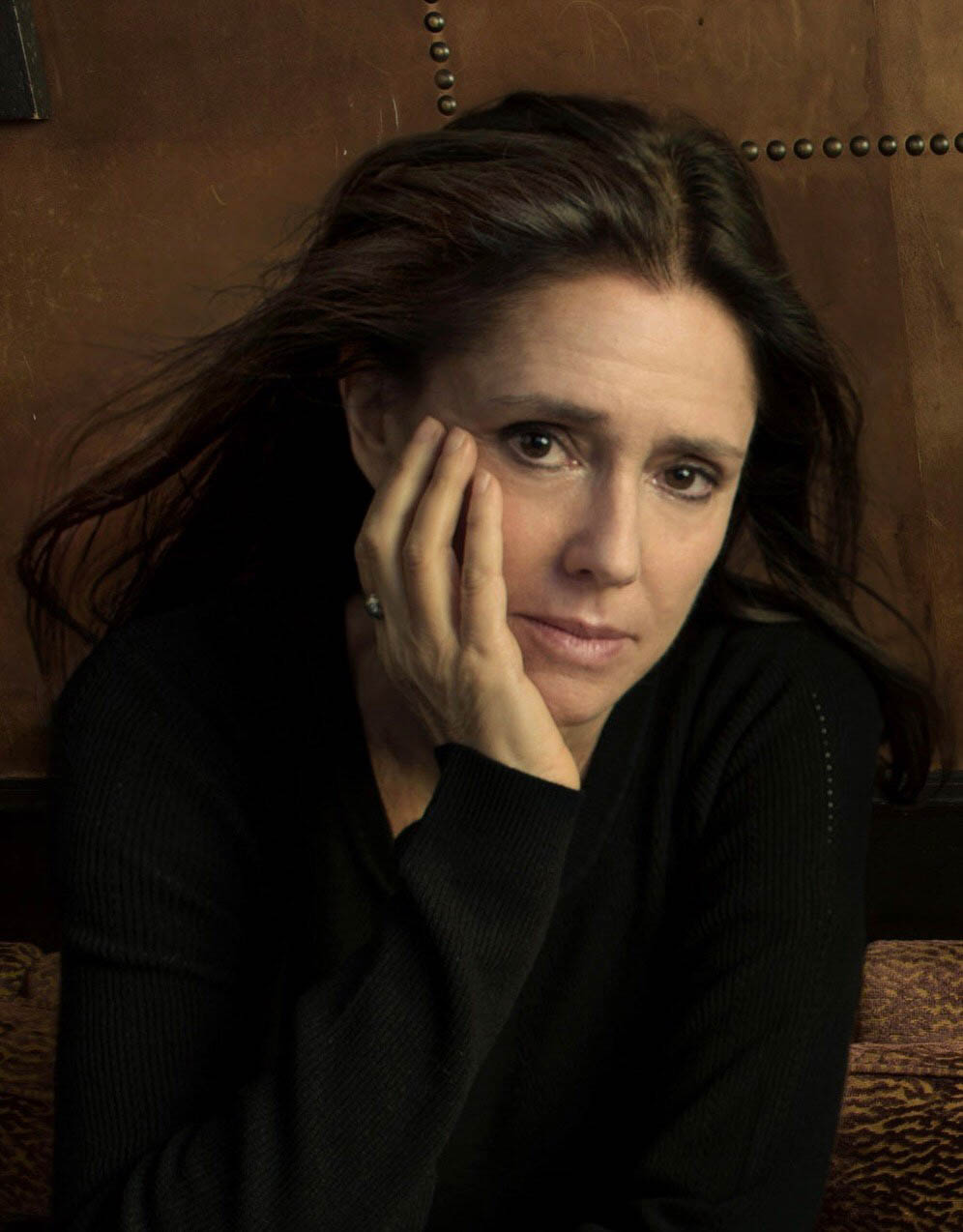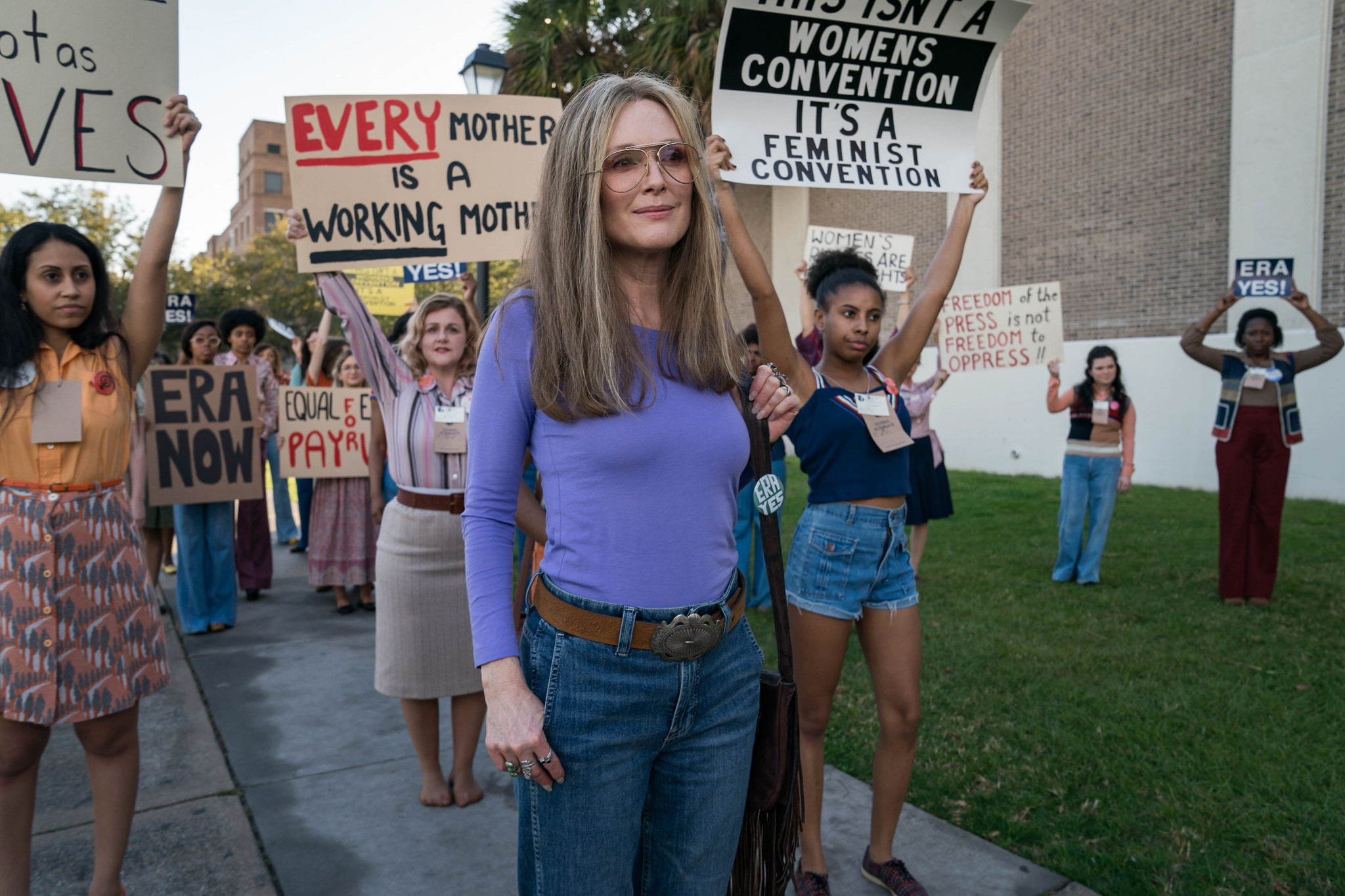
- Interviews
Julie Taymor’s ‘The Glorias’ Screens at Sundance
A single Greyhound bus is the connecting link of The Glorias, the new movie by Julie Taymor (Titus, Across the Universe, Frida), about feminist, activist, icon Gloria Steinem. Based on Steinem’s My Life on the Road, the film shows her portrayed by four different actresses at four different stages of her life. The film premiered in front of an enthusiastic crowd of 2000 people at the Eccles Theatre in Sundance, where it received three standing ovations, for the vibrant Steinem who took the stage next to Taymor. “We are going to use the film as a tool in the upcoming presidential elections,” said the 85-year-old activist. “The important thing is to get that a–hole out of office, and for that, we need to get people to vote, so I will support whoever candidate will be chosen as long as we get Trump out of office.” Shortly after we spoke with director Julie Taymor.
Julie, how familiar were you with the life of Gloria Steinem?
I had no idea who Gloria Steinem was until I was sent her book My Life on the Road It’s about taxi cab rides, political issues, the various women that she organized with, but it’s not linear. And then it goes back into her childhood, and the childhood part, with her mother and her father, was at least partially like Yes, the most important man in her life, her father, played by Timothy Hutton in our film, was Crazy Leo, not really a huckster, but kind of a showman, he used to call himself “Steinemite”, a traveling salesman of antiques and junk. Gloria and her sister never went to school until she was 12 and traveled across the country, her father used to say that travel is the best education. Meanwhile, her mother, who had been a journalist unbeknownst to Gloria when she was a little girl, repressed her ambitions, like many women in the 40s and 50s, once she met this jolly, fun, great guy and nearly lost her sense of herself and got into the drugs that got women calm. These stories have been told a little bit, but it was shocking to see why Gloria is the woman she is since childhood.

Julianne Moore as one of The Glorias.
sundance.org
How did you then portray Gloria in her adulthood?
She went to India for a fellowship for two years where she became an activist, following Gandhi’s teachings. She went from village to village listening to women of a lower caste talk about the riots in their village and about the rape of their children in front of them, and young 22-year-old Gloria sat there and saw how talking circles, sitting and listening and letting people speak about what was going on in their lives, was the most epic way for change. This is the opposite of the way our country works right now and it’s something that I was attracted to in telling the story of one of the amazing great feminist leaders, maybe the most renowned in our country still to this day: that power is in the listening, the power is letting other people rise up, it’s the grassroots.
It’s interesting how you developed the concept of the bus, the four women interacting with one another.
And that makes the difference in my film, and I felt that in some way she is all of us. And this bus out of the time is the glue to all the various episodes. When I told Gloria Steinem the idea for the black and white bus out of time, forever traveling to the next demonstration or the next convention or the next political meeting or the next talking circle or speech that she’s given, and I told her the concept of the different characters, she asked, ‘how did you know’? And I said, ‘know what’? And she said, ‘that I often see my younger self on the street corner or that I often wonder how things would have been different, or what I will do in the future’. So as a device it was risky, but I think now that the film is finished – I just finished it last week and Sundance was the first time anybody saw it – I think it worked! I didn’t want to pick a period like most biographical pictures do, I wanted people to see the whole woman and the other women that make her who she is. That’s the magic of cinema.

